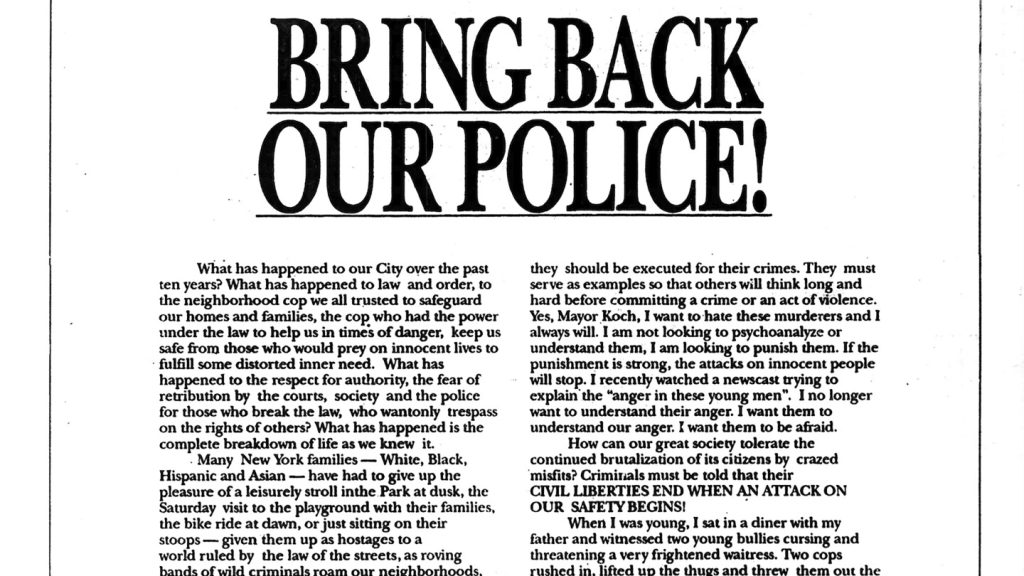Former President Donald Trump faced a guilty verdict in his hush money trial this week, marking the first time a U.S. president has been convicted of felony crimes in a court of law. Trump did not hesitate to criticize the criminal justice system as corrupt and rigged against him, despite the irony of his situation. The trial took place in a Manhattan courthouse that was once the site of a notorious case where five Black and Latino youths were wrongly convicted in the beating and rape of a white jogger. Trump had previously taken out a newspaper ad calling for the execution of the accused, highlighting racial tensions and the prejudice in the criminal justice system.
Some Black Americans found humor in Trump’s railing against his own conviction in a courthouse where he had supported the wrongful conviction of Black and Latino teenagers in the past. Trump’s involvement in the Central Park Five case was one of his first steps into tough-on-crime politics, setting the stage for his populist political persona. Despite this history, Trump has recently adopted language often used by criminal justice reform advocates in his outreach to Black and Hispanic communities. He suggests that prosecutors are unfairly targeting him, a sentiment that does not sit well with many Black Americans who remember his controversial comments in the Central Park jogger case.
The guilty verdict in Trump’s trial has elicited mixed reactions from individuals involved in the Central Park Five case. Rev. Al Sharpton, who advocated for the exoneration of the five men, sees Trump’s conviction as a symbolic measure of justice. Yusef Salaam, one of the exonerated men who now serves on the New York City Council, did not take pleasure in Trump’s verdict, despite the former president’s previous calls for their execution. These men had their convictions vacated in 2002 after evidence linked another person to the crime, but Trump has never apologized to them.
Racial justice advocates are seizing this historic moment to emphasize the disparities in the treatment of Trump compared to Black and Hispanic individuals in the criminal justice system. They highlight the fact that Trump did not face the same hardships, such as a violent arrest or incarceration, that many minorities face. Moreover, they point out Trump’s attempts to overturn the 2020 presidential election results in heavily Black and Latino districts as part of a broader narrative around electoral justice. The NAACP president Derrick Johnson believes that Trump’s criminal conviction should disqualify him from seeking the presidency in the future.
In conclusion, Trump’s guilty verdict in his hush money trial has sparked conversations about racial disparities in the criminal justice system and highlighted the intersection of race, politics, and justice. The juxtaposition of Trump’s conviction with his involvement in the Central Park Five case serves as a reminder of the ongoing fight for racial equality and accountability in the legal system. As Trump continues to navigate the legal repercussions of his actions, the implications of his conviction extend beyond his individual case to broader discussions about democracy, justice, and representation in American society.


